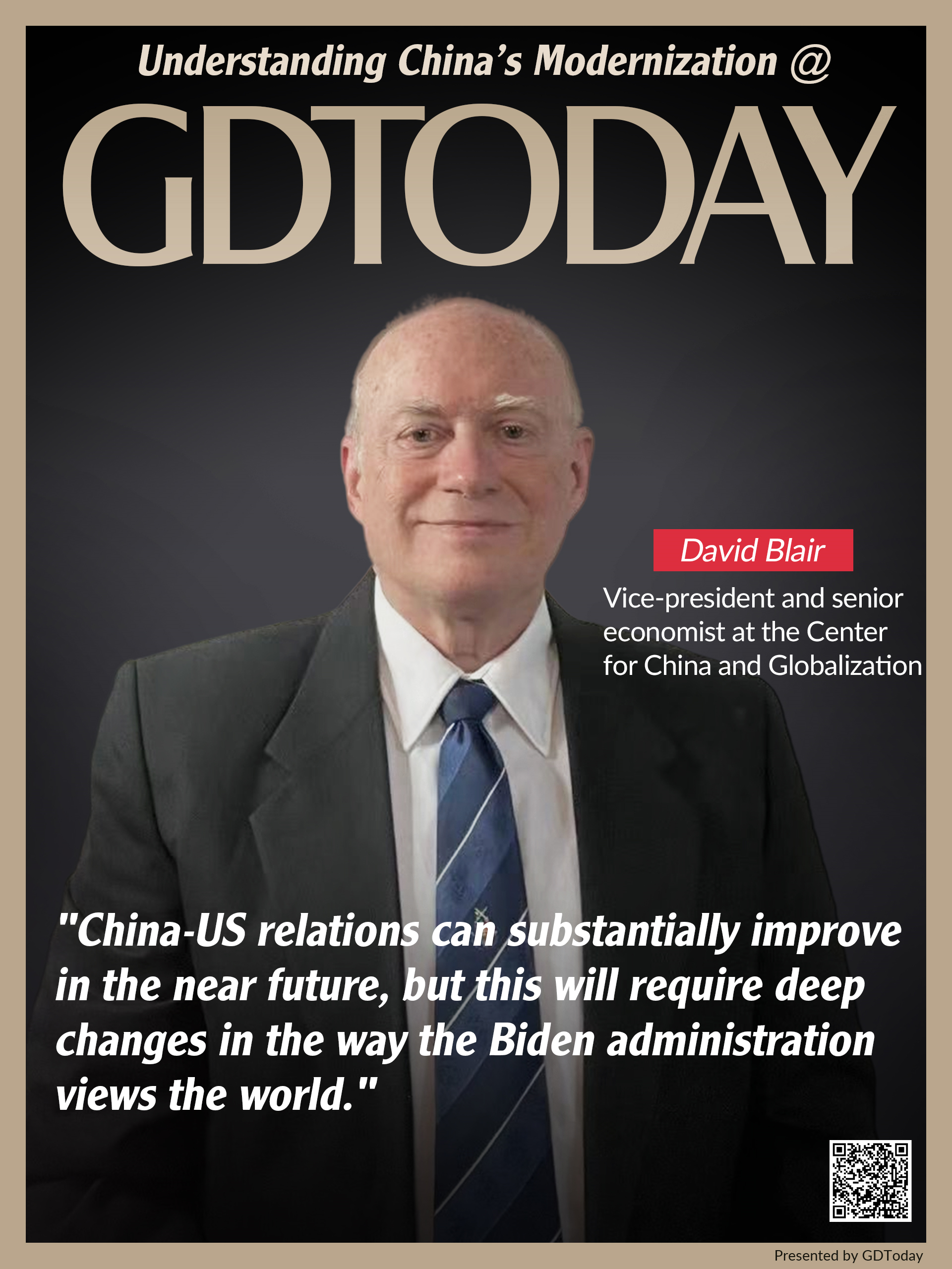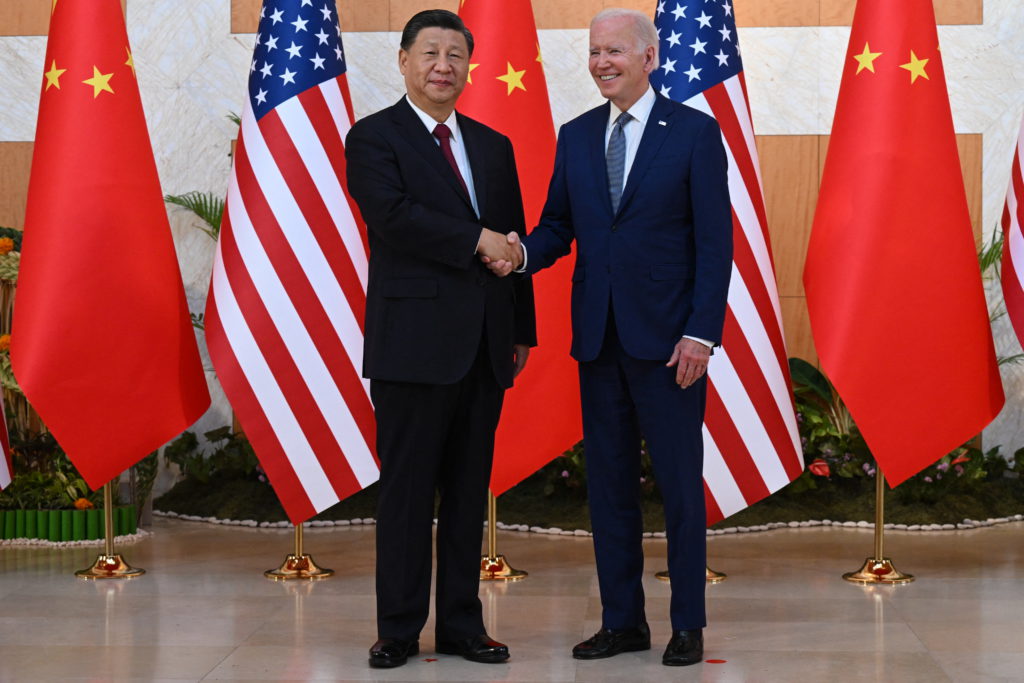On the afternoon of 14 November local time, Chinese President Xi Jinping had a meeting with US President Joe Biden in Bali, Indonesia, before the 17th summit of the Group of 20 (G20). The two presidents had a candid and in-depth exchange of views on issues of strategic importance in China-US relations and on major global and regional issues.
“I’m very glad to see the two nations are talking again and hope it leads to genuinely better relations,” David Blair, Vice-president and senior economist at the Center for China and Globalization, told the GDToday reporter in a recent interview. In his opinion, China-US relations determine the direction of the world.
Read also: Xi Jinping visits Yan’na, stresses Party’s “founding spirit”

Xi-Biden meeting helps ease tension between two countries
During the meeting, President Xi pointed out the current state of China-US relations is not in the fundamental interests of the two countries and peoples, and is not what the international community expects. The two countries need to explore the right way to get along with each other in the new era, put the relationship on the right course, and bring it back to the track of healthy and stable growth to the benefit of the two countries and the world as a whole.
Read also: Biden, Xi vow to avoid US-China conflict during Bali meeting
Blair served for the Commission on Integrated Long-Term Strategy in the Reagan administration. In his opinion, good relations between the US and China can make the world a much better place, but bad relations lead to lost potential at best and to unimaginable catastrophe at worst.
Since 2017, Donald Trump declared China a “strategic competitor” and launched a trade war against China in the following year, a plummet in China-US relations. In October 2022, the US government introduced new export bans on China’s chip industry.
“Relations have been bad lately, especially after Pelosi’s trip to Taiwan,” said Blair.
Blair observed that for some years, the US got used to a world where it saw itself as the “sole superpower”, and has been playing a negative sum game. “This is dangerous and actually does a lot of damage to the American people who lose economic opportunities and have been subjected to endless wars.”
He furthered, “the US and China actually have many interests in common and few in conflict. We need to build on the things we have in common, instead of using a lot of negative propaganda against China and acting against the interests of the American people.”
During the meeting, the two presidents reached an agreement in the fields of public health and agriculture, encourage and support China-US people-to-people exchanges, and expand such exchanges in all sectors.
Read also: China virus cases at six-month high despite grinding lockdowns
“These issues of agreement are important, but they are not the fundamental issues of avoiding conflicts,” Blair concluded, “I hope that China-US relations can substantially improve in the near future, but this will require deep changes in the way the Biden administration views the world.”
G20 should consider further expansion
With the theme “Recover Together, Recover Stronger”, the G20 summit has the economic recovery high on agenda. President Xi put forward a three-point proposal when addressing the G20 summit, saying that we need to promote a more inclusive, universally beneficial and resilient global development.
In Blair’s view, all the words in President Xi’s development goals are important, “As we have seen, the current world’s financial and economic system is unstable and vulnerable to economic and geopolitical shocks, we need to build a less concentrated and more resilient system so that future shocks are less devastating.”
Read also: China hopes leaders’ meeting marks ‘new beginning’
He points out, within the US, almost all the economic gains of the last 40 years have been seized by a small elite class. And many nations are vulnerable to economic exploitation by a few global banks and corporations.
“Both within countries and across nations, we need to correct this by creating a more inclusive and universally beneficial development system,” Blair noted. To achieve this goal, he told the GDToday reporter that the G20 should become the G21 by including the African Union.
“The world economy is no longer dominated by the same G7 countries that were economically dominant 20 to 30 years ago,” said he. “The G20 is important because it pulls in rising economic players and includes other interests and viewpoints.”



